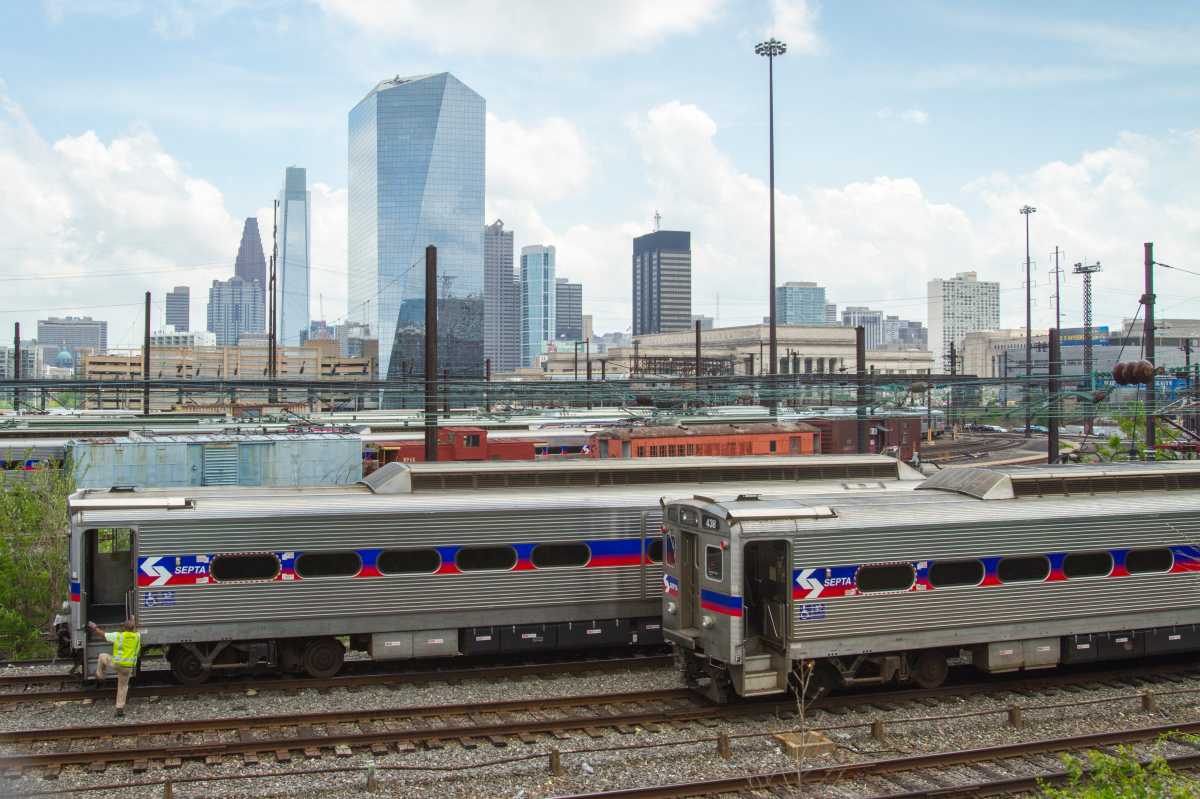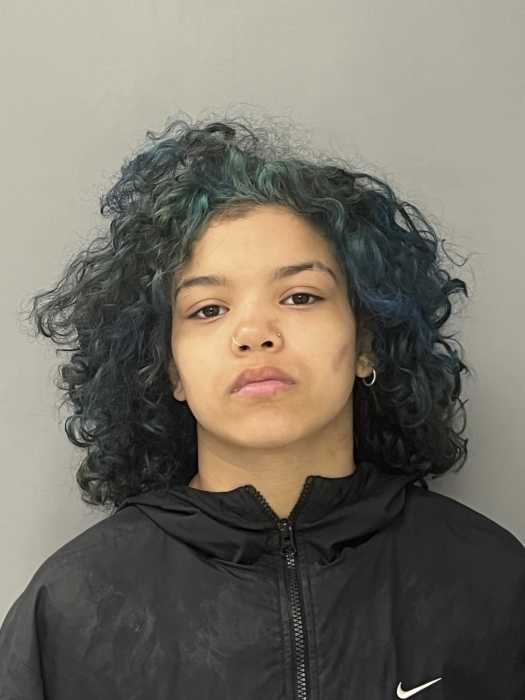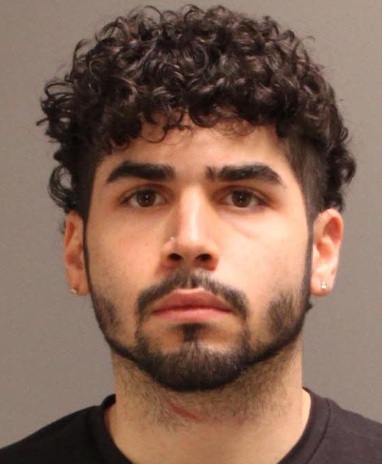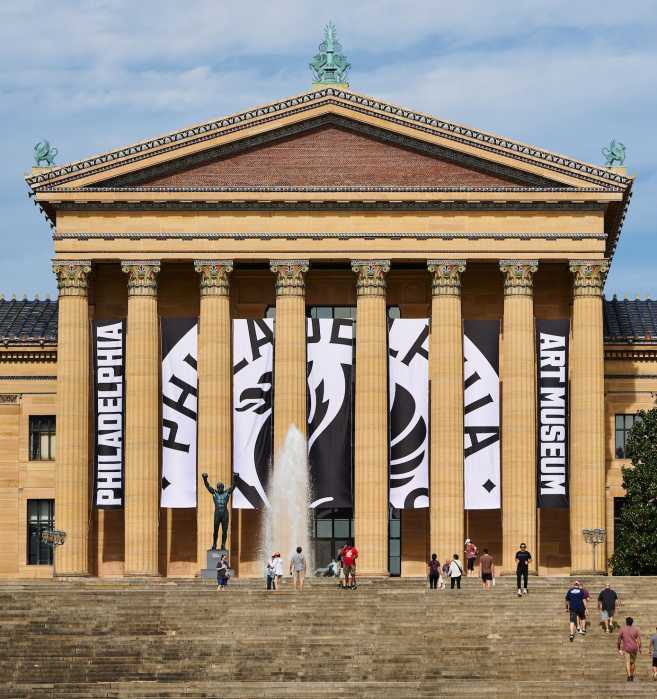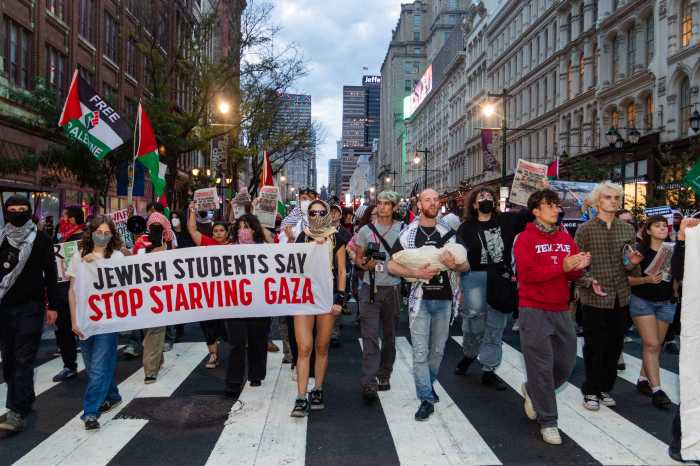SEPTA is planning to raise fare prices nearly 30%, eliminate dozens of routes and significantly slash service frequency in the new year to address its budget deficit, as authority leaders seek to “manage the decline” of the transit system.
Top officials at SEPTA for more than a year have been warning of an incoming “fiscal cliff” that, absent a funding solution, could lead to a “death spiral” of fare hikes, service cuts and dropping ridership.
On Tuesday, SEPTA Chief Operating Officer Scott Sauer, who will become interim general manager later this month, replacing the departing Leslie Richards, announced the first step – a significant fare hike.
Transit officials are also finalizing a 20% cut to existing service, with details expected to be released early next year. Sauer said the reduction will affect all modes of travel and every part of the region with SEPTA service.
An estimated 22% ridership loss is expected to result from the cuts and fare hikes, according to the authority.
“We’ve been pushed to a position where we are managing the decline of SEPTA,” Sauer said at a news conference Tuesday. “While other states are investing in new services and infrastructure, we’ll be mothballing our vehicles and shuttering our stations. Rail lines will become so infrequent that they will be useless to most of our customers.”
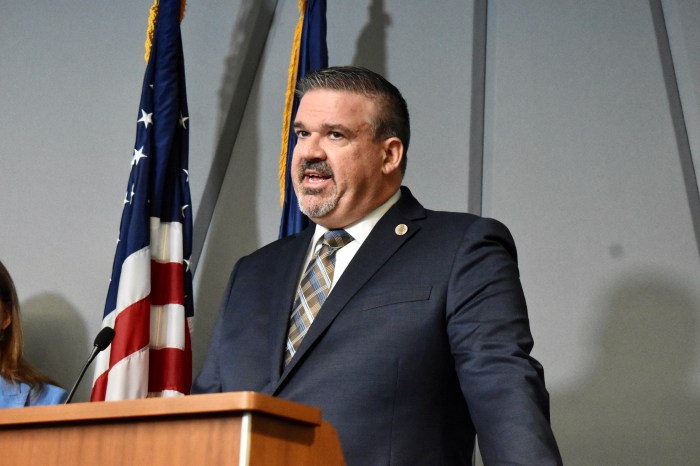
If the price changes are approved, riders would pay $2.90 for bus, trolley and subway trips beginning Jan. 1, up from the current rate of $2 for Key Card users and $2.50 for those paying with cash.
Weekly and monthly TransPasses would move to $31 and $116, respectively, up from $25.50 and $96. Regional Rail tickets would jump from $3.75 to $5 for Zone 1; $4.75 to $6.50 for Zone 2; $5.75 to $7.75 for Zone 3; and $6.50 to $8.75 for Zone 4. A full list of planned changes is available at septa.org.
The price increases are on top of a more modest fare hike proposal unveiled in September that eliminates discounts for Key Card users and raises Regional Rail rates. SEPTA’s board is expected to consider those adjustments, which would go into effect Dec. 1, at the body’s Nov. 21 meeting.
Hearings on the fare hikes outlined Tuesday are scheduled to take place Dec. 13 at the Pennsylvania Convention Center, with a board vote likely later that month. The prices would be increased Jan. 1.
The authority is also postponing Bus Revolution, its yearslong project to reconfigure the region’s network of bus routes, as a result of the financial crisis.
SEPTA’s budget deficit is projected to exceed $150 million for the current fiscal year, which ends in June, and transit officials have said it could rise to $240 million next year without additional sources of funding.
Sauer said the fare proposal would generate an additional $45 million a year. SEPTA has not taken salary reductions or layoffs off the table to help close the gap, he told reporters.
A strike that would halt bus, subway and trolley service in Philadelphia also remains possible, with negotiators from SEPTA and Transport Workers Local 234 working on a new City Transit Division deal.
The union’s contract expired Nov. 8, and Local 234 members voted to authorize a strike late last month, citing pay and safety concerns.
“We want to give them a fair contract,” Sauer said Tuesday. “Unfortunately, as it stands today, even with the fare increases and service cuts, it’s going to be a very difficult process to reach some resolution on that.”
Expiring federal coronavirus relief funding and ridership numbers that remain below pre-pandemic numbers have created financial problems for SEPTA and other transit agencies across the country.
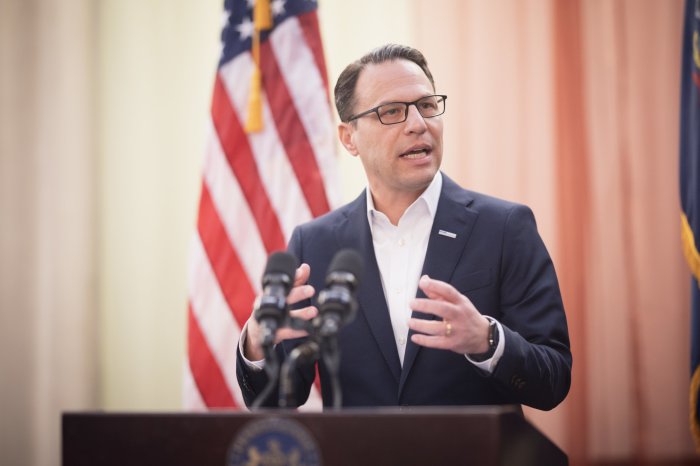
Over the summer, Gov. Josh Shapiro proposed a state budget that would have allocated an additional $161 million a year to SEPTA. However, the final spending plan did not include the provision, instead sending the authority a one-time payment of $46 million.
Shapiro committed to revisiting the issue and coming up with a solution in the fall legislative session, which is now in its final days. Lawmakers in the Democrat-controlled Pennsylvania House of Representatives have repeatedly passed a transit funding bill that has stalled in the state Senate, where the GOP holds a majority.
“The Governor believes it’s past time for the Senate to send this funding to his desk to support mass transit all across our Commonwealth, drive economic growth, and ensure Pennsylvanians can get to their destinations safely and efficiently,” Shapiro spokesperson Manuel Bonder said Tuesday in a statement.
Senate Majority Leader Joe Pittman, of Indiana County, said in a statement that SEPTA “must take steps to increase the safety and efficiency of the organization before any additional taxpayer dollars are committed.” Pittman has stressed that transit funding must be accompanied by investment in other transportation infrastructure, such as roads and bridges.
City Councilmember Jamie Gauthier, whose district includes parts of West and Southwest Philadelphia, said the fare increases and service cuts would cause “catastrophic damage” to the neighborhoods she represents.
“Republicans in Harrisburg are responsible for this predictable but avoidable scenario, and they must prevent this irreversible death spiral,” Gauthier said in a statement. “If all else fails, I urge Gov. Shapiro to do everything he can to stop the bleeding.”



